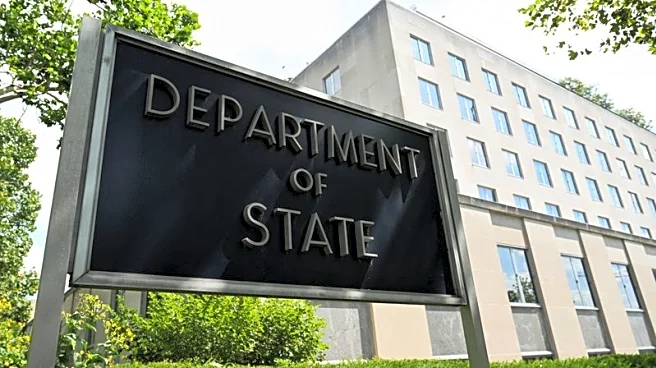What's Happening?
AT&T and JPMorgan Chase are among several major corporations enforcing strict return-to-office (RTO) policies, requiring employees to work in-office full-time or face resignation. AT&T CEO John Stankey issued a memo suggesting employees who resist the
RTO mandate should seek employment elsewhere. Similarly, JPMorgan Chase has implemented a full-time, in-office policy, despite employee petitions against it. Paramount Skydance also mandated a five-day office workweek, resulting in significant restructuring costs due to employee resignations. These moves reflect a broader trend among companies to reduce headcount and cut costs by enforcing RTO policies, despite employee resistance.
Why It's Important?
The enforcement of strict RTO policies by major corporations like AT&T and JPMorgan Chase highlights a significant shift in workplace dynamics post-pandemic. This trend could lead to increased voluntary turnover, as employees who prefer remote work may choose to resign rather than comply with in-office mandates. The impact on HR departments is substantial, as they navigate the complexities of layoffs and employee dissatisfaction, potentially leading to increased burnout among HR professionals. The broader implications for the U.S. workforce include potential changes in employment patterns and workplace culture, as companies balance cost-cutting measures with employee preferences.
What's Next?
As companies continue to enforce RTO policies, the coming year may see increased passive resistance from employees and managers, who are already experiencing burnout. This could lead to further voluntary turnover and challenges in maintaining productivity and morale. Organizations may need to reassess their RTO strategies to address employee concerns and find a balance between operational efficiency and employee satisfaction. The ongoing debate over RTO policies is likely to influence future workplace trends and corporate strategies, as companies adapt to evolving employee expectations and economic conditions.
Beyond the Headlines
The hard-line approach to RTO policies raises ethical questions about employee autonomy and the balance between corporate interests and employee well-being. The potential for increased stress and burnout among HR professionals and middle management highlights the need for supportive measures and resources to manage workplace transitions effectively. Long-term, these developments could lead to shifts in corporate culture, with companies reevaluating their approach to employee engagement and retention in a post-pandemic world.
















